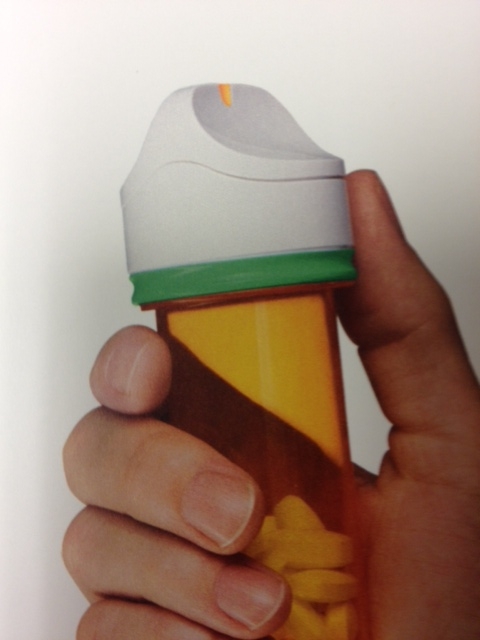December 25th, 2011 by DrWes in News, Opinion
No Comments »


 Just saw this advertised for patients taking Multaq (dronedarone): interactive pill bottle caps called “GlowCaps:”
Just saw this advertised for patients taking Multaq (dronedarone): interactive pill bottle caps called “GlowCaps:”
GlowCapsTM is a bottle with built-in wireless communication… When you receive your GlowCapTM, you program it with your schedule. It will then remind you when it’s time to take Multaq by lighting up, playing a melody, or calling your home phone. If you and your physician choose, your GlowCapTM can also send weekly reminder e-mail to you and a caregiver, send reports to your doctor, and refills can be initiated with the push of a button, if you provide a phone number when registering.
Okay. That’s pretty cool.
How It Works Read more »
*This blog post was originally published at Dr. Wes*
October 2nd, 2011 by John Mandrola, M.D. in Opinion
No Comments »

You have probably read that experience makes for better doctors.
And of course this would be true–in the obvious ways, like with the hand-eye coordination required to do complex procedures, or more importantly, with the judgment of when to do them.
There’s no news here: everyone knows you want a doctor that’s been out of training awhile, but not so long that they have become weary, close-minded or physically diminished. Just the right amount of experience please.
But there’s also potential downsides and struggles that come with experience. Tonight I would like to dwell on three ways in which experience is causing me angst.
But first, as background…
It was the very esteemed physician-turned-authors, Dr. Groopman and his wife, Dr. Hartzland, who wrote this thought-provoking WSJ essay–on how hidden influences may sway our medical decisions–that got me thinking about how I have evolved as a doctor. They were writing from the perspective of the patient. But in the exam room, there are two parties: patient and doctor.
# 1) The sobering view that experience brings: Read more »
*This blog post was originally published at Dr John M*
September 20th, 2011 by John Mandrola, M.D. in Opinion
No Comments »

Did you know September is AFib awareness month?
As a believer in education as the first, and best treatment of AF, I think it’s great to enhance the public knowledge of this highly-misunderstood disease.
By all means…
Tell people about AF’s risks: stroke and heart failure.
Tell them that their fatigue, poor exercise tolerance and breathlessness might not be old age; it might be AF.
Tell them about the importance of early intervention.
Tell them that obesity, inactivity, sleep disturbances, alcohol, and incessantly worrying about everything makes AF more likely to occur, and to stay.
Tell them that Read more »
*This blog post was originally published at Dr John M*
August 16th, 2011 by MellanieTrueHills in Health Tips, Research
No Comments »

As a patient, you probably see lots of hype-filled reports about various drugs. After a drug is approved, there’s an inevitable blitz of negative publicity which often scares people away from important new solutions that could help them.
There has been so much news lately about Multaq (dronedarone), the drug designed to provide the benefits of amiodarone but with fewer risks. This drug is important to people with afib, especially those with heart disease whose choices are limited, so it’s time to put into context for patients what has transpired in the two years since FDA approval.
These two companion articles provide an in-depth analysis into issues that have been reported about Multaq, including whether it can cause: Read more »
*This blog post was originally published at Atrial Fibrillation Blog*
July 18th, 2011 by John Mandrola, M.D. in Opinion, Research
1 Comment »

What should I have told the doctor who recently asked me about dronedarone (Multaq)?
“Supposedly, it’s [Multaq] just like Amiodarone, but without the side effects?” he asked.
Gosh…Should I, or shouldn’t I?
I took a big cleansing breath, reminding myself to stay civil, as at least Sanofi-Aventis, the makers of Multaq, sponsor a cycling team. Then I gave him my long answer:
I started with the fact that Multaq barely made it through the approval process. One of the original studies with Multaq (ANDROMEDA), a randomized trial of Multaq in patients with severe heart failure, showed that patients who took the drug were twice as likely to die.
Multaq eventually won approval for use in patients without significant heart failure and mild forms of AF, based on the results of the ATHENA trial—which randomized 4628 patients with non-permanent AF to either standard therapy or standard therapy plus Multaq. The ATHENA investigators didn’t exactly say that Multaq works, rather they claimed that it reduced a composite of hospitalizations and death.
This started the marketing machine in motion, the likes of which I have not ever witnessed. Read more »
*This blog post was originally published at Dr John M*
 Just saw this advertised for patients taking Multaq (dronedarone): interactive pill bottle caps called “GlowCaps:”
Just saw this advertised for patients taking Multaq (dronedarone): interactive pill bottle caps called “GlowCaps:”












